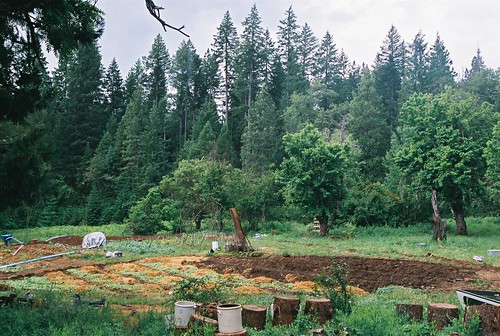Organic gardening is also cheaper; you don’t have to spend as much money on tools and requires very little equipment. Here are some strategies to aid you to become a good organic gardener.
Your children can help you with your organic gardening endeavors. A garden can be a great learning experience for your children, and will give you an opportunity to bond with them while you produce healthy food.
Keep your garden tools close by to maximize gardening efficiency.
When your plants begin to sprout, they will not be in need of the warmth they needed to germinate. Watch your seeds so you can know how to go about this.
Make the most of the time spent in your garden every day. Do not spend half an hour looking for a tool. Prepare all of your tools prior to working in the garden, and put them away nicely when you are done. If needed, try using some pants with pockets in them.
Have some plastic bags on hand so that you may cover your muddy gardening shoes.
Some typical examples include ageratum and petunias. If you don’t know whether your seeds require sun exposure, look online or at the package.
When you run your personal organic garden, try lightly petting your seedlings — either with the palm of your hand or something like a sheet of cardboard — once or twice each day. While it might sound strange, it has been reported that this can encourage plant growth.
Fill this jar up with beer just under an inch from the top of your jar. The beer will bait the slugs into the jar and they will become trapped.
Create raised beds with stone, bricks or untreated wood.Choose a wood that is resistant to rot and is untreated. Some good choices you might consider are locust, cedar, and cedar. In order to avoid toxic substances from getting into the ground and perhaps into your vegetables, don’t use treated wood since its chemicals can leech into the food crops and soil. If you have built a bed with treated lumber already, you should line it with a bit of plastic to create a barrier.
If you need to prove to customers that your produce is legitimately organic, you need to secure organic garden certification. This will up your sales and prove to your loyal customers that what they are getting the best that you possibly could get.
If you follow these advice on organic gardening, you will be able to have a productive, toxic-free, healthy garden in the future. You can also look forward to a boost in the volume of wildlife inhabiting your nature-loving garden.

